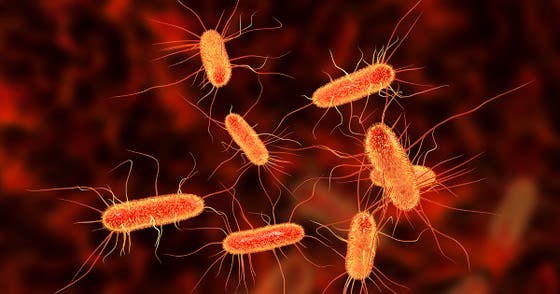Dec 9: Using antibodies to fight bacteria

How can we use antibodies to fight bacteria? Suzan Rooijakkers, professor of microbiology at UMC Utrecht, has received a grant of € 2 million from the European Research Council (ERC) to answer this question. She has been awarded this grant for her research into antibody therapies that use the immune system to fight bacteria. In this way, she hopes to find an alternative to antibiotics in the long term.
Suzan Rooijakkers (Department of Medical Microbiology, UMC Utrecht) has received an ERC Consolidator Grant for good reason: because more and more dangerous bacteria are becoming resistant to antibiotics, there is great scientific interest in the development of therapies that strengthen the immune system. Promising is the potential of antibodies, the body's own proteins that can help the immune system clean up bacteria. Suzan has been investigating this for some time now, partly in collaboration with partners at the Utrecht Molecular Immunology Hub. This new ERC grant can now give this research a significant boost.
Alternative to antibiotics
Suzan explains: “With this research I want to generate a better understanding of how antibodies work. The ultimate goal is to offer an alternative to antibiotics.” When a person develops an infection, the body makes all kinds of antibodies. Some antibodies can kill the bacteria. They do this by activating the "complement system"; this is a network of proteins in the blood that can ‘drill’ holes (pores) in the cell membrane of bacteria. Suzan: “We don't yet understand why some antibodies can kill bacteria well whereas others cannot. I would like to solve this question.”

Identifying antibodies
Suzan's first action will be to assemble her research team, which will consist of PhD students, postdocs and a technician. She will also collaborate with clinicians at UMC-Utrecht and experts from the Netherlands and abroad. “We will be focusing the research on the E. coli bacteria, because it is responsible for many resistant infections,” says Suzan. “Because urinary tract infections are usually caused by this bacteria, we take blood from people with such an infection. Their blood contains many antibody-producing cells against E. coli - exactly the cells we need for our research. The team will then try to identify antibodies against this bacterium. After these antibodies have been identified, we can study them in the laboratory and ultimately develop them into a therapy against infections with this bacteria. This would be an important step in the development of antibody therapies against E. coli. We could apply this therapy, for example, in the treatment of diseases where this bacteria currently causes major problems. Examples include complicated urinary tract infections, kidney transplants and infections in patients with acute leukemia undergoing chemotherapy.”
Suzan also wants to find out in detail how antibodies activate the complement system and combat the bacteria. Suzan: "If you understand that process, you can very quickly translate it into the development of antibody therapies (and perhaps vaccines) against other bacterial infections and possibly also against viruses."
Occasionally counterproductive
A final question Suzan would like to answer with this research program is why a urinary tract infection is much more severe in some people than in others. “There are indications that in some people such an infection becomes severe because these patients produce ‘bad’ antibodies. They seem to produce antibodies that appear to inhibit, rather than activate, the complement system. I would like to understand why this is. And if that is indeed the case and we understand how it works, then we can also intervene and slow down the process.”
On December 9, 2020, Suzan Rooijakkers received an European Research Council Consolidator Grant. Read the ERC press release here.
Would you like to know more about the Utrecht Molecular Immunology Hub? Then watch this video.
